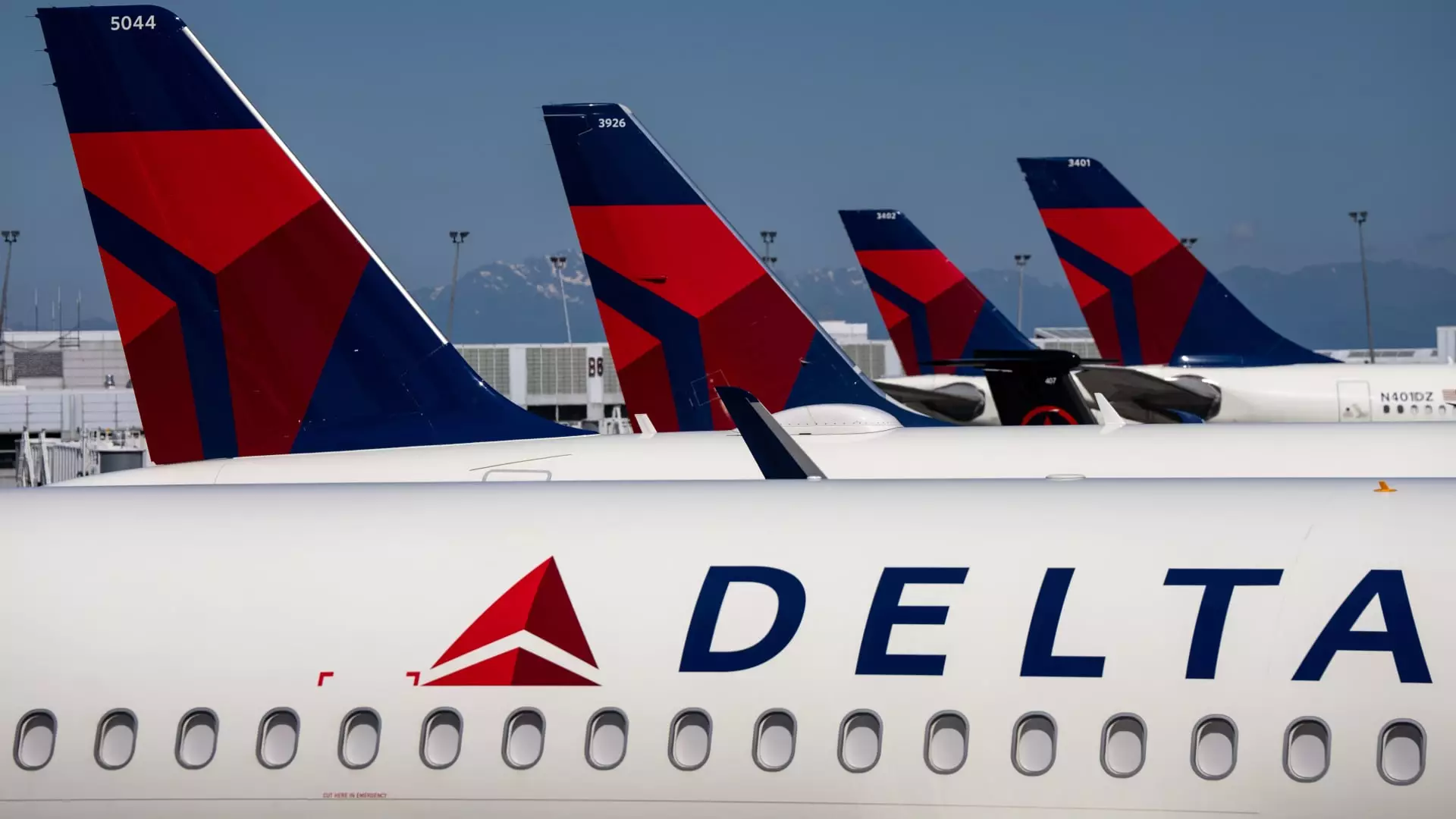As Delta Air Lines unveils its revamped revenue and profit expectations for the first quarter of 2023, a darker cloud looms over the airline industry. The company’s forecast for revenue growth has been dramatically revised downward, falling to a mere 5% increase—down from an earlier projection of 6% to 8%. This sharp decline is alerting investors to a troubling trend that casts a shadow over future demand in the travel sector. It’s not merely a minor adjustment; this is a glaring red flag that signals deep-rooted issues that could take months, if not years, to remedy.
Consumer Confidence: A Fragile Landscape
The reduction in guidance stems from diminishing consumer and corporate confidence. In a world grappling with macroeconomic uncertainties, it is no wonder that both leisure and business travelers are tightening their purse strings. What’s more troubling is Delta’s acknowledgment that systemic challenges, such as recent safety concerns precipitated by tragic accidents, have compounded the situation. Notably, Ed Bastian, Delta’s CEO, insists that a recession is not imminent; however, consumer confidence appears increasingly precarious. This sentiment reflects a larger cultural shift where even regular travelers are reconsidering their travel plans, which could spell disaster for airlines that are still struggling to recover from the pandemic.
The Impact on Investor Sentiment
In the wake of Delta’s announcement, the airline’s stock took a nosedive of over 13% in after-hours trading. The steep decline was accentuated by a preceding drop of over 5% during regular trading hours. This overwhelming sell-off among investors indicates a growing anxiety about the sustainability of airline stocks in a world where consumer behavior seems to be shifting drastically. Delta’s peers—American Airlines, Southwest Airlines, and United Airlines—are bracing themselves for similar reactions from the market as they prepare to share insights on current demand trends. The collective nervousness within the industry raises questions about investor confidence and the long-term viability of airline stocks.
Attempts at Stability Amidst Chaos
Interestingly, despite the downward revisions in domestic demand, Delta claims that premium travel, international journeys, and loyalty revenue growth remain in line with expectations. However, this optimistic outlook feels tenuous at best when set against the backdrop of declining overall demand. One cannot help but question whether the emphasis on certain segments will offset the losses elsewhere. In the grander scheme, can an airline sustain profitability when its foundational consumer base falters?
A Cautionary Tale for the Industry
While the travel industry had previously weathered the storm of the Covid-19 pandemic relatively unscathed compared to other sectors, these recent developments spark a re-evaluation of its resilience. The question emerges: Can airlines continue to portray an image of stability when consumer sentiment teeters on the edge? Delta’s battle against declining consumer confidence serves as a cautionary tale for the entire industry, urging stakeholders to reassess how they read and react to economic indicators. Without a clear path forward, the stability that investors crave may remain elusive for some time, indicating that the worst may yet to come for Delta and its counterparts.

